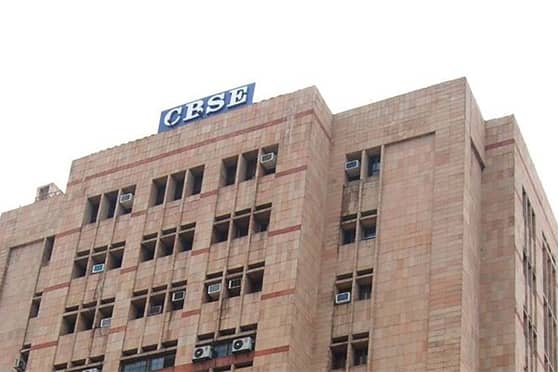Sanyam Bhardwaj, CBSE controller of examinations, speaks to The Telegraph on the various complaints and queries relating to the Term-I board exams. Excerpts:
(The parts in italics are annotations by this newspaper.)
Q: Why did the CBSE send the results to the schools instead of announcing them itself?
Bhardwaj: If the board announced the results, it would have had to provide two mark sheets to each student, one for the Term-I exam and another for the Term-II exam. The students of this batch would in future be easily identified as the “Covid-period batch”, having two mark sheets.
So it was decided that the board would issue only one mark sheet, after the Term-II exam, combining the students’ performances in both the exams. So we sent the Term-I theory marks to the schools so the students could know how they had done and prepare accordingly for the Term-II exam.
Q: Why were the answer keys not made public and the students not allowed access to their evaluated OMR (answer) sheets?
Bhardwaj: Each exam centre was provided with the question papers and answer keys. To share the evaluated OMR sheets with the students, a separate system would have been required where the students could log in. It would have involved a lot of effort. This system would have become redundant in subsequent years (with the return of subjective-type tests).
Had we made the answer keys public and provided students with access to the OMR sheets, they would have spent more time on these instead of focusing on the Term-II exams. On the OMR sheet, a student can, anyway, only see whether marks have been awarded for the correct answers….
There was no subjective-type question where there could have been a dispute about the marking. With an MCQ-type exam, it’s only about whether marks have been awarded or not, and whether the totalling is correct or not. We will do that verification once we get the requests (grievances).
In the Term-II exams, which will be a subjective-type test, we shall follow the usual system and allow the verification of marks, provide photocopies of answer sheets and offer re-evaluation as in previous years.
Q: Why were assessments done by the schools for some papers and by the board for others?
(The CBSE had initially sent the answer keys to the exam centres where the teachers evaluated the OMR sheets and submitted them online to the board along with the scores on the same day. But after a few papers were held, the CBSE asked the schools not to evaluate the OMR sheets but send them unevaluated to the board.)
Bhardwaj: Initially, the schools were allowed to download the question papers and OMR sheets. The schools used papers of different sizes. Some of the OMR sheets could not be scanned for evaluation by machine reading. But the board wanted to keep records of scanned OMR sheets.
So, after exams in a few papers had been conducted, the board provided printed OMR sheets for Class XII that could be scanned through machines for evaluation. The OMR sheets sent by the schools to the board were evaluated through machines.
Q: Why has the weightage to be awarded to the Term-I scores not yet been determined? When will it be announced?
Bhardwaj: The board decided that the weightage would be decided after consultations with the stakeholders. Deep and wide consultations will be done along with the conduct of the Term-II examinations (in April-June).
Q: There are complaints that several private schools helped their students answer questions. Has the CBSE received such complaints and examined their veracity?
Bhardwaj: The CBSE is a professional board and makes all efforts to ensure that exams are conducted fairly. For the Term-I exam, the board deployed observers and sent special “flying squads” during the printing of question papers, conduct of exams and the evaluation.
Wherever the board received information (complaints), it deployed additional observers to ensure that the exams were conducted fairly. It also analysed data of the performance of the schools in the Term-I exams vis-à-vis with their performance in past examinations to ascertain any inconsistency. The board is determined to take strict action against the schools it has found using unfair means and practices.
Q: There are complaints about students not receiving compensatory marks for flawed questions and for questions that had more than one correct answer. Has the CBSE examined such complaints and are these true?
Bhardwaj: There were a few such questions. All the students were awarded full marks for those questions, but subject to the maximum (full) marks in the paper (since some students may have attempted extra questions).
Still, if any student has any issue, they can send their grievances to us through their schools.











